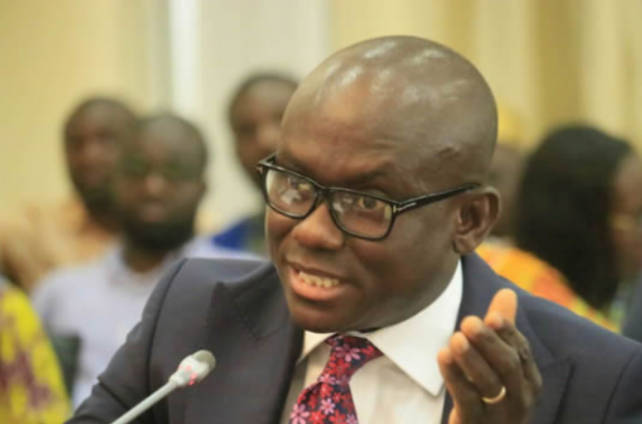Private legal practitioner, Prof. Stephen Asare, aka Kwaku Azar, has questioned the Attorney General’s failure to find a solution to the issues surrounding professional legal education in the country.
According to him, the Attorney General, Godfred Yeboah Dame, has constitutional authority to solve the problem by simply giving direction to the General Legal Council; however, he is refusing to use those powers.
He was somewhat disappointed in the Attorney General’s response to Parliament concerning the House’s resolution to the GLC to admit all 499 students who had attained the 50% mark threshold but have been denied admission.
He said, “The AG and others who could not find anything illegal with the 499 scam and the monopoly of the GSL have all of a sudden discovered that Parliament has no power to pass a nonbinding resolution directing the GLC to act ethically and follow the law.
“The AG acknowledges that he has the power to direct the GLC but does not tell us why he has not used that power. Why do we want power so badly when we do not want to use that power?”
In response to Parliament’s directive, the Attorney General said Parliament does not have the jurisdictive authority to direct the GLC to admit the students.
He, however, noted that he was working in conjunction with the President to find a solution to the problem.
But Kwaku Azar notes that the back and forth between Parliament and the Attorney General is entirely wasteful.
He called on the Attorney General to use his powers granted by the constitution to “direct the accredited Law Faculties to offer the ‘PLC’ to anyone who has an LLB.”
“That will be real progress!!” he added.
Prof. Kwaku Azar explains that allowing the various University Law Faculties to offer the professional law course would greatly benefit legal education in Ghana.
According to him, “It will test the maintained hypothesis that the School has a comparative advantage over the Faculties in the teaching of Family Law, Procedure, Evidence, ADR, etc.
“It will allow our Law Faculties to improve their rankings in Africa by allowing them to offer these foundational courses that have been hijacked by the School.
“Competition will improve quality and innovation and potentially reduce cost. We will see smaller classes and rational timetables, not this forced 12 hours a day camp in poorly ventilated facilities,” he explained.
Latest Stories
-
OmniBSIC Bank returns for 2025 JoySports Invitational Tournament
2 minutes -
Photos: Ghana defeat Niger to finish third in WAFU-B U20 Boys Cup
50 minutes -
Star Assurance signs up for JoySports Invitational Tournament
1 hour -
Indigenous firm Duytlex partners with Petro-Canada Lubricants to expand footprint in Africa
1 hour -
JAPTU Ghana pays courtesy call on IGP Yohuno, POMAB members
1 hour -
The healers who were left behind: A tale from Nunyãdume
2 hours -
Telecel bridging digital divide through KNUST SONSOL Programme
2 hours -
2025 Mid-Year Budget: Trade expert calls for single-digit inflation to strengthen economy
2 hours -
From Doubt to Dreams: Telecel’s 2Moorch Money Promo changes a nurse’s life
2 hours -
A strong cedi that Ghana does feel – policy and market behaviour
2 hours -
GIPC facilitates 2,000 jobs following milestone aftercare intervention
2 hours -
2025 Mid-Year Budget: Economy is on steady course – Trade Expert
2 hours -
Stanbic Investment Management Services Ltd announces strong 2024 performance
2 hours -
Banking is necessary, but banks are not: Ghana’s digital finance disruption story
3 hours -
Ghana set to sign bilateral debt agreements today under G-20 framework
3 hours

